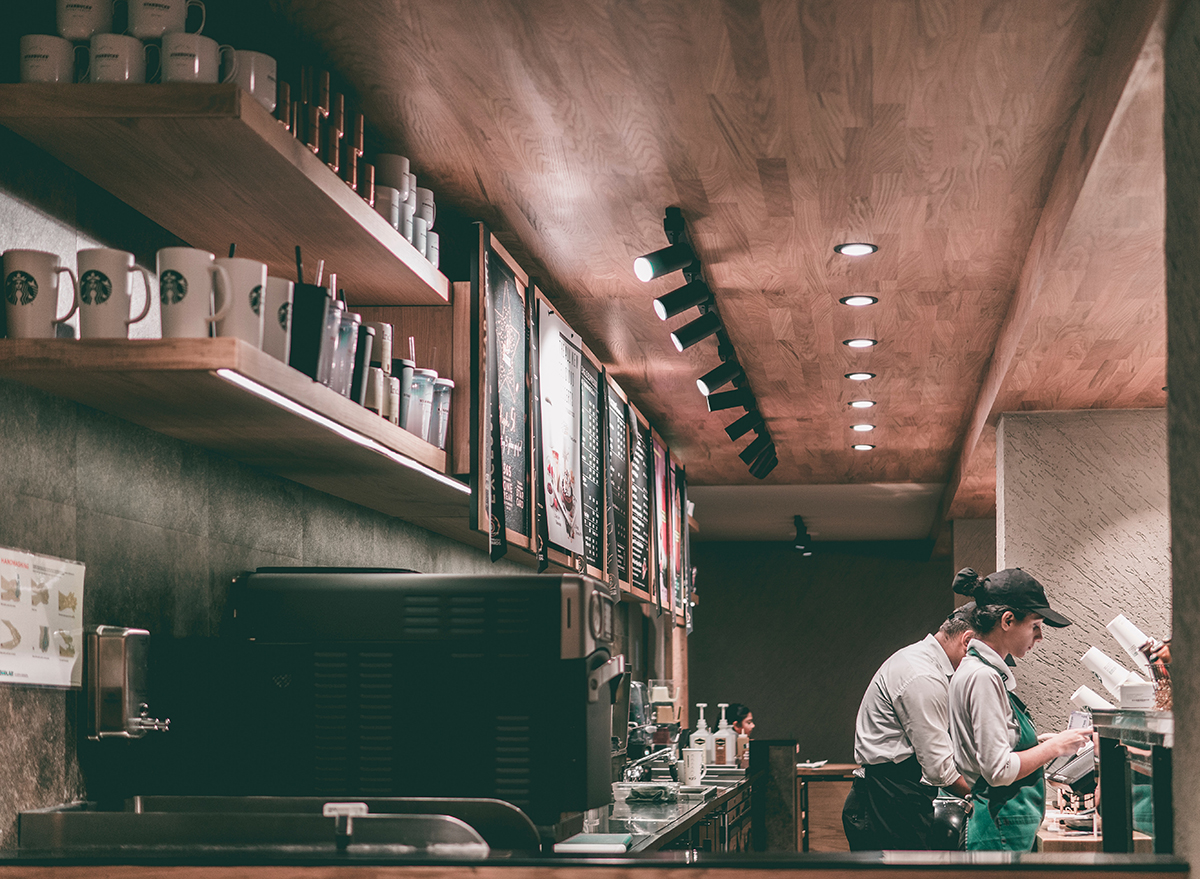5 Reasons Starbucks Is In Turmoil Right Now
The restaurant industry is descending into chaos again amid a rise in Omicron cases, and things are particularly difficult at the nation’s largest grab-and-go coffee purveyor.
Starbucks is kicking off 2022 with much of the same problems it had last year—issues that are causing major headaches for the chain and tarnishing its reputation among employees and customers. Additionally, unionization efforts among its workers could represent a new era for the company’s corporate stores, one in which employees have more leverage to demand better employment conditions and higher wages.
Here are several major problems Starbucks currently has on its hands. For more, check out 5 Major Fast-Food Chains Falling Out of Favor With Customers.
Staffing shortages are cutting down store hours
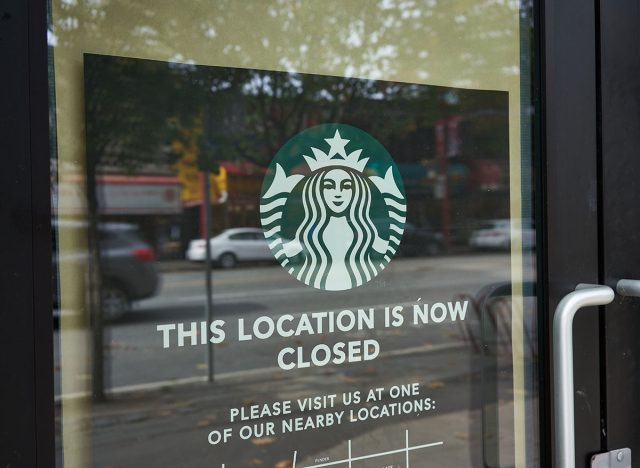
Staffing shortages are happening all over the restaurant industry and Starbucks is feeling the effects of this trend tremendously. The chain has recently announced its service will be disrupted for weeks to come. Customers are to expect shorter store hours as well as spottier availability of mobile ordering as a result, according to an email the chain sent to customers on January 14.
Starbucks locations have been shutting down and cutting hours for months, and customer complaints are piling up. Business Insider reported in October about an Ohio location that had to resort to closing down two full days a week and, like many others, turned into a drive-thru-only store, closing off its dining rooms. Similar issues with local Starbucks stores are being reported by customers nationwide.
Ingredients are missing across the board

Shortages of ingredients and by extension menu items have also been plaguing Starbucks for much of 2021. The company recently confirmed we can expect the spotty availability to continue until further notice.
After first encountering fleeting shortages of oat milk and flavored syrups in the spring, by June, the chain acknowledged its supply chain issues were wreaking havoc on its menu. Dozens of popular items were officially put on “temporary hold” due to dwindling supplies of things like hazelnut syrup, toffee nut syrup, chai tea bags, and green iced tea. Toward the end of 2021, customers were complaining about shortages of the frappuccino mix and breakfast sandwiches—really basic items that make up a classic Starbucks experience.
Currently, the buzz is building up around a possible nationwide mocha shortage at the chain.
Mobile orders are causing chaos for employees and customers
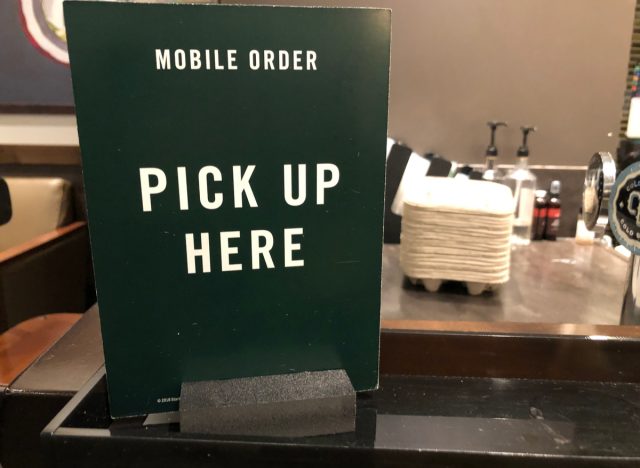
When mobile orders really began to take off during the pandemic is when things got much more difficult for the already overworked Starbucks baristas. For one, the digital system allows too many orders to come through at once, causing a bottleneck that employees can’t possibly handle in a timely manner. For another, the mobile app allows for endless drink customizations, delaying the process of drink-making further.
And beyond causing chaos at chronically understaffed cafes, the mobile app also poses challenges for customers. According to insiders at the chain, the app is glitchy and doesn’t accurately reflect the availability of ingredients at most Starbucks stores, which leads to botched orders where key ingredients are either missing or substituted with undesired alternatives.
The company’s workers are unionizing
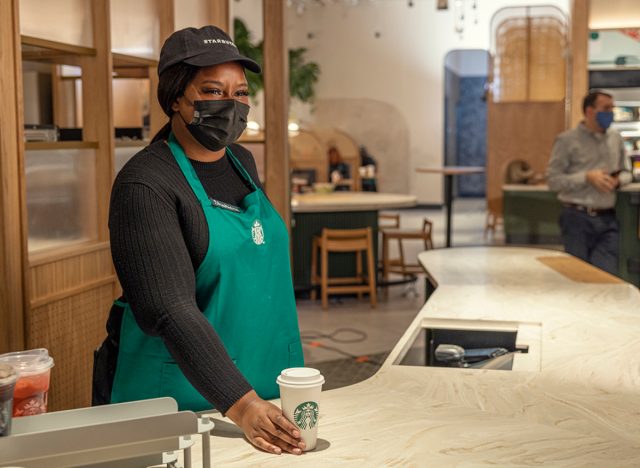
Starbucks workers’ unionizing efforts, which took off last year, are actually succeeding, despite the company’s attempts to stifle them (attempts which, among other things, included store closures and a bizarre Holocaust analogy.)
It all started with a Starbucks in Buffalo, N.Y. which voted to unionize in December. It was a major win for Starbucks employees and their first union in the United States. The watershed moment prompted a chain reaction of store-by-store unionization efforts, and currently, as many as 25 Starbucks cafes, in Mesa, Ariz., Memphis, Tenn., Richmond and North Chesterfield, Va., and Baltimore, Md., are at varying stages of the unionization process.
Starbucks employees who join a union will have a chance to negotiate their rights pertaining to wages, insurance benefits, grievance and arbitration procedures, workplace policies, and other employment-related issues, and will generally be able to hold the chain to a higher degree of accountability. And who knows, a limit on daily mobile orders could end up being a point of negotiation, too.
The chain is facing backlash for new COVID-19 policy
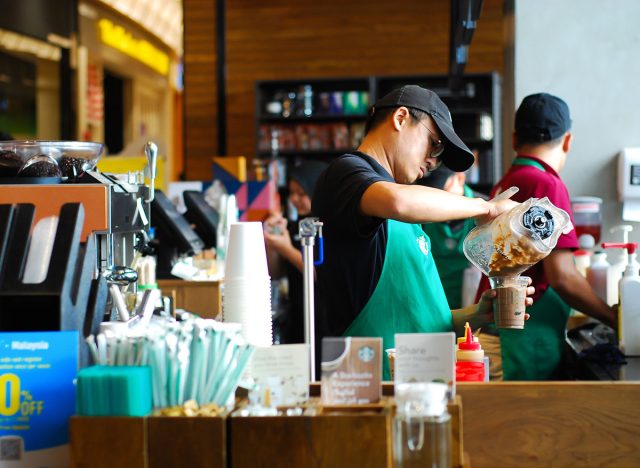
After the Supreme Court struck down the President’s effort to implement a sweeping vaccine mandate for large employers, Starbucks swiftly walked back its plans to demand workers to be fully vaccinated or submit to weekly COVID-19 tests.
While Starbucks COO John Culver stated that the “vast majority” of the chain’s employees are fully vaccinated, the company is still drawing ire from the general public for dropping the policy that could keep its workers and customers out of harm’s way.
